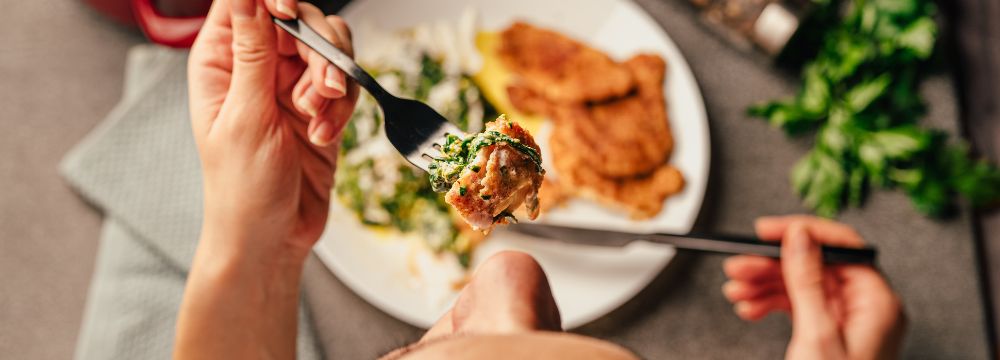It may be one of the last things on your mind, but during stressful times such as these, we tend to find comfort in the familiar. Our lives have been affected, in many cases, to such a degree that going back to old habits becomes easy. For those suffering from excess weight or who had bariatric surgery, this may mean eating during times of extreme stress. After all, for years, or even decades, eating was our way of coping. Our bodies are very good at remembering those feelings and sensations, despite how destructive those actions were to our health.
While we can tell ourselves that we deserve to indulge a little bit more during these crazy times, the weight can pile on pretty quickly and put us in a position where it is difficult to turn around. Unfortunately, as we all know, it is much easier to put on weight than eliminate it.

So what do we do? The short answer is we have to manage our stress and keep our cool as we ride this out:
This too shall pass
An important thing to remember during medical emergencies such as these is that they are, ultimately, temporary. While we see daily updates with massive increases in cases and deaths, we have to remember that the global community is more interconnected than ever and diseases spread more quickly and easily. Eventually, we will move past this crisis and restore normalcy both from a medical and economic standpoint.
Avoid the constant news stream
It is also clear that the news coming out of many politicians’ offices as well as news outlets is inducing panic. Rather than offering concrete solutions and data, many are promoting sensational stories that only make us more anxious and uneasy. And while this is clearly an emergency, we have to keep it in perspective. Doing so requires focusing on the leaders in the medical field such as the CDC and the National Institutes of Health. Beyond following their recommendations and any law-enforcement orders, try to avoid reading the news each day and obsessing about how bad the coverage seems.
Talk it through
Discussing our anxieties and fears are some of the best ways to keep them under control. Whether it’s friends, family members or colleagues, it is very healthy to have these communications even if you worry your fears may seem unfounded. We should remember that social distancing, in this context, really means physical distancing and we should maintain our social contacts, even if they are remote.
Maintain your diet and exercise regimen
Exercise is a stress buster and releases endorphins into our system which could improve mood and even help the immune system. Beyond exercise, maintaining a proper diet, drinking plenty of water and getting plenty of rest can all contribute to improved health and the body’s ability to fight off any infection, including coronavirus.
Once you have stress under control, you can start to adapt your eating patterns. Make sure that you do not go to the grocery store to buy unnecessary high fat or high foods. While it is very tempting, and you may even rationalize doing so by saying that you need it for long-term food stockpiles, there are other ways of getting the food you need and staying healthy.
- First, plan out a recipe that is high in lean protein and low in fat and sugar. If you feel the need to have extra food available, double the recipe and freeze the uneaten portions. Your freezer is a good friend during times like these and can keep food safe and fresh for up to six months.
- Second, when you do go to the grocery store, make sure you prepare a list beforehand and stick to it. You might find some less-than-healthy food is on sale and you may be further tempted by its long shelf life, but don’t do it.
- Third, go grocery shopping only after having eaten. It is often tempting to go to the store while hungry, but you are almost sure to overindulge with foods and drinks that are not on the list.
We know that you are not a robot. You have emotions that include both rational and irrational anxieties. We all catastrophize when we are under a great deal of stress. Even medical professionals can be overwhelmed by rapidly evolving situations like these that strain our health system.
The point being…don’t try to suppress your emotions and stresses, but manage them. If you are a bariatric patient, you will have already developed coping skills to manage times where you feel like overeating. This is a great time to redouble your efforts and to get in touch with other bariatric patients and support group buddies to help each other through this difficult time.









